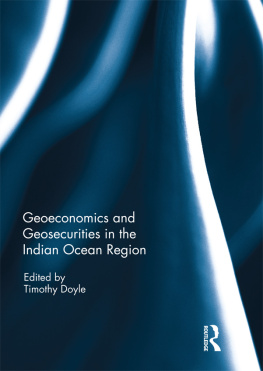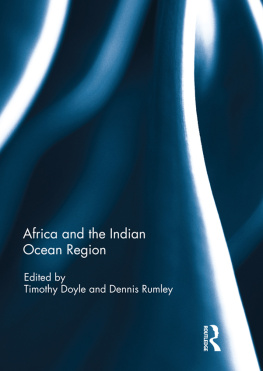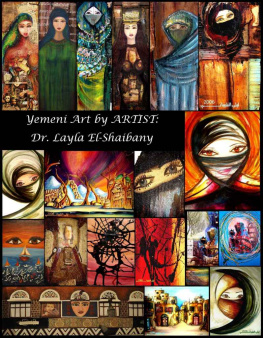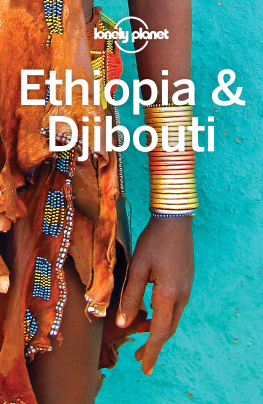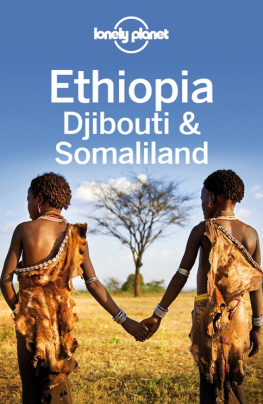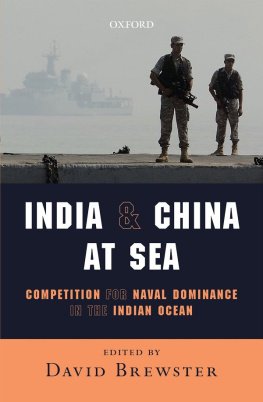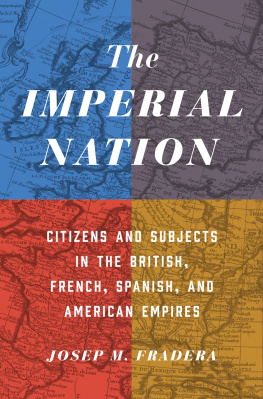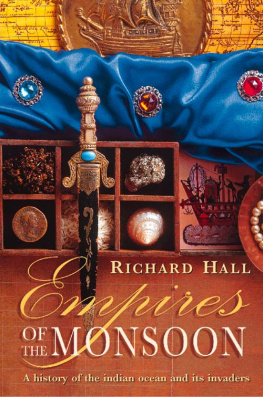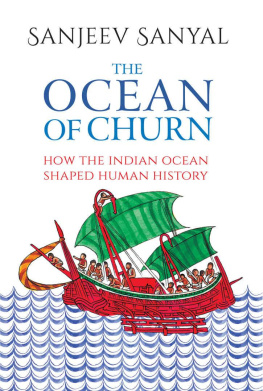This electronic edition published in 2015 by
The American University in Cairo Press
113 Sharia Kasr el Aini, Cairo, Egypt
420 Fifth Avenue, New York, NY 10018
www.aucpress.com
Copyright 2015 by Samson A. Bezabeh
All rights reserved. No part of this publication may be reproduced, stored in a retrieval system, or transmitted in any form or by any means, electronic, mechanical, photocopying, recording, or otherwise, without the prior written permission of the publisher.
ISBN 978 977 416 729 4
eISBN 9781 61797 705 3
Version 1
Subjects of Empires/Citizens of States is the result of eleven years of academic research, beginning in 2004. Over this somewhat long period many individuals and institutions have generously supported my work. In the early days, Dr. Getachew Kassa Negussie, from the Institute of Ethiopian Studies at Addis Ababa University, raised my curiosity about the presence of Yemenis in the Horn of Africa and the Indian Ocean. Prof. Leif Ole Manger, from the University of Bergen, was instrumental in my coming to the Department of Social Anthropology, first as a masters student and later as a PhD candidate. Throughout the years that I have known him, Prof. Manger has been a source of inspiration. His constant urge to explore social complexities in their most minute detail is a rare instinct worth pursuing.
The preparation of this manuscript was generously funded by three institutions, to which I extend my deepest gratitude. My stay in Addis Ababa was funded by the Centre Franaise des tudes thiopiennes, and was made pleasant by a number of individuals, chief among them Dr. Giulia Bonacci and Dr. Anas Wion. My time in Leiden was supported by the Afrika-Studiecentrum, which gave me a three-month fellowship. In Leiden, I would particularly like to thank Dr. Benjamin F. Soares, who was a very generous host who made my stay in the Netherlands memorable. My residency in Paris was made possible by a postdoctoral research grant from the European Commission and the Fondation Maison des Sciences de lHomme. And special thanks go to Dr. loi Ficquet, my primary research contact at the cole des Hautes tudes en Sciences Sociales, where I was based during my time in Paris.
Various parts of this manuscript have been reviewed by a number of scholars. In this regard, I would particularly like to thank Dr. Anne K. Bang, an academic interlocutor since 2006, from the Christian Michelsen Institute in Norway. I have particularly benefited from the reading of Prof. Scott S. Reese from Northern Arizona University. His sharp criticism greatly helped me to reshape the original material. My thanks also go to Prof. Daniel Varisco from the American Institute of Yemeni Studies and Dr. Rita Abrahamssen from the School of International Development and Global Studies, University of Ottawa. Both have commented on parts of the manuscript and the insights I obtained from them have positively contributed in the shaping of the manuscript. I am also very grateful to Dr. Simon Imbert-Vier from the Universit de Provence Aix-Marseille, who read the full manuscript. Dr. Imbert-Vier pointed out various gaps that would have been difficult for me to identify. I am also grateful to the two anonymous reviewers of this book, whose suggestions have greatly contributed to the improvement of the manuscript.
In addition to these individuals, I am indebted to Prof. Ulrike Freitag from Zentrum Moderner Orient in Berlin and Leila Harold Ingrams for helping me locate historical documents over the course of my research. Thanks are also due to those who provided the framework for intellectual exchange. In Bergen, the text writing seminars led by Prof. John Chr. Knudsen and the Middle Eastern cluster of the Department of Social Anthropology that Prof. Anh Nga Longva chaired provided excellent milieus for shaping the theoretical angle of this work. The many discussions and occasional talks I had with Dr. Bjrn Enge Bertelsen, Prof. Andrew Latas, Prof. Bruce Kapferer, Prof. Vigdis Broch-Due, and Prof. Nefissa Naguib were sources of inspiration. The interdepartmental meetings that brought together anthropologists based at University College London and the University of Bergen were also valuable encounters that helped in further shaping the argument of this book. The meetings were marked by intense debates and I was fortunate to be part of them. I would therefore like to extend my thanks to the coordinators, Prof. Knut Rio and Prof. Annelin Eriksen, and the fellow anthropologists present during those meetings, particularly Dr. Martin Holbraad, whose radical take on anthropology became a source of intense debate and hence helped in developing a specific argument that eventually found its way into this book.
In the field, I would like to extend my deep gratitude to the people who shared their stories, and who accepted me and introduced me to their friends. I would particularly like to thank those who directly facilitated my research. In Djibouti, I am indebted to former Prime Minister Abdallah Mohamed Kamil, Naguib Ali Tahir, Aref Mohamed Aref, Ambassador Muhammad Abdallah Hajar, Fathi Guelleh, Aman Abd al-Qadir, Adil Salah, Dr. Souad Kassim, Dr. Adawa Hassan Ali, Dr. Hibo Moumin Assoweh, Zaynab Kassim, Abu Baker Mohamed, Mohamed Ibrahim, Prof. Abdel Ghaffar Ahmed, and Saeed Rubah. In Ethiopia, I would like to extend my gratitude to Saeed Ba Zara, former Ambassador Abd al-Sala al-Awadi, Abd al-Basit al-Bedani, Isa Ahmed, Abd al-Rahman Ahmed al-Habshi, Salah Ba Naji, Taha al-Bar, Ruqayya Ba Zara, Ali Ba Zara, Abdallah Emmad, Abdo Ba Bedan, Husain Ezia, Mohamed Abdo Ramada, Mohamed and Ali Ba Hajeri, Abdallah Abd al-Rahman al-Qershi, Mohamed Hudeda, Tsega Sentayehu, Idris Mohamed, Najib Mehederi, Husain Mohamed, Abd al-Malik Mohamed, Mesfin Gebra, Zahab Mohamed, and Saeed Mohamed.
I would also like to thank my parents, Abebe Bezabeh and Athen Tsehay. My gratitude is deep and without your love and support I would not have reached this particular stage of my life. Thanks is also due to my three sisters: Sarah, Aster, and Rahel.
Last but not least I would like to thank my friends Zalila M. Ashetu, Aneley Engidawork, Sajan Thomas, Carmeliza Rosario, Thomas Mountjoy, Anne Straume, Jessica Mzamu, Melese Gatisso, Rita Cunningham, Thor Sortland, Jayaseelan Raj, Tord Austdal, Laura Adwan, Alexander Manuylov, Hanna Skartveit, Espen Helgesen, Reshma Bharadwaj, Kristine Fauske, Dean Kampanje Phiri, Endale Tsegaye Mohammed, Fasil Ayelegn Tassew, Harold Hazzang, Henos Kifle Tekle, Maria Njau, and Viviane Wei Wei.



